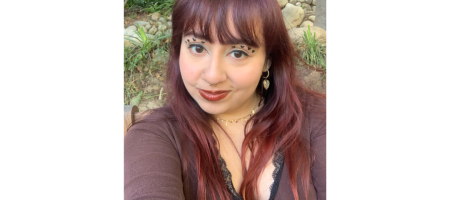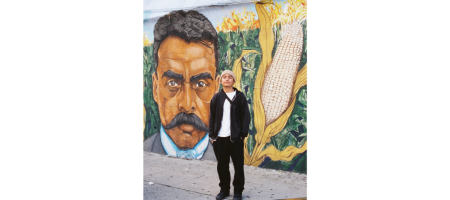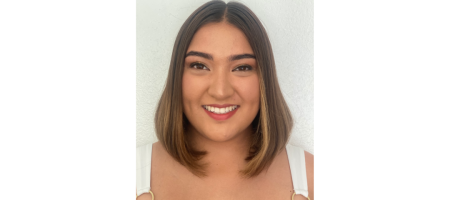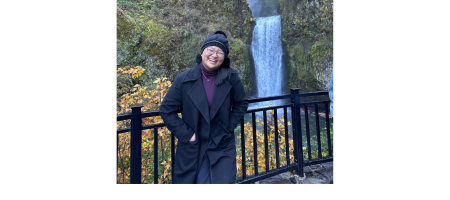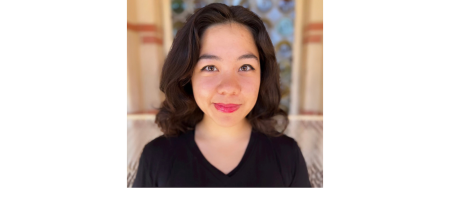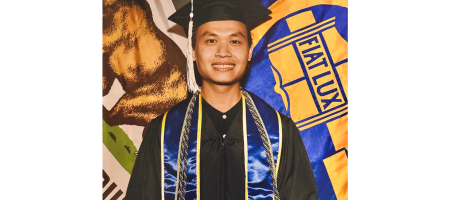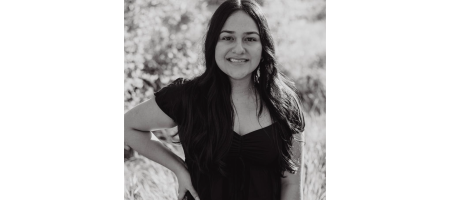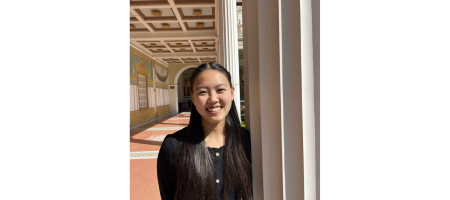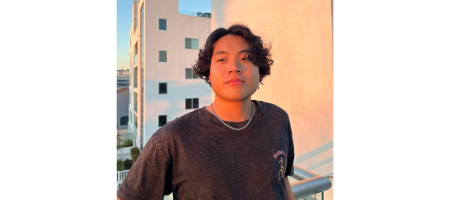Student Spotlight – Cris Avitia Camacho
Meet UCLA undergraduate researcher Cris Avitia Camacho!
Cris majors in Chicana and Chicano Studies & Labor Studies, minors in Gender Studies, and is part of the Undergraduate Research Fellows Program. The title of their project is “The Intersections of Culture, Religion, and Identity on Child-Mother Relationships: College-Aged Assigned Female at Birth LGBTQ+ Individuals with Latinx Mothers.” Cris’ work, which examines the effects of religion, culture, and identity on relationships between assigned female at birth LGBTQ+ individuals and their Latinx mothers, is inspired by their own experience as a non-binary lesbian individual with a Latinx mother. Their best piece of advice is to write about something that matters to YOU.
How did you first get interested in your research project?
I first became interested in my research project when I took CCAS M126 Politics of Crisis: Migration, Identity, and Religion and wrote my final research paper about the effects of migration and religion on the mother-child bond. I felt very passionate while writing that topic and wanted to explore it in a different direction, with my own interests in gender and sexuality. Therefore, when the URFP application went live, I decided to give it a shot and apply. I choose to do my research project for URFP on this topic because of my own experiences as a non-binary lesbian individual with a Latinx mother. I’m in the process of interviewing other LGBTQ+ individuals who have a similar identity to mine and see the effects of religion, culture, and identity on relationships between them and their mother. The importance of this is because gender and sexuality are often “taboo” topics within the Latinx community, and I want to give a voice to individuals whose experiences might otherwise be pushed down or unheard.
What has been the most exciting aspect of your research so far?
The most exciting aspect of my research so far has been getting to go through the history of gender and sexuality in Latin American cultures, and how it has evolved over time. There’s so much information not readily available or known to the public, and I believe that writing about this topic could allow for open conversations about it. Also, going through the IRB process and getting approval was so rewarding and helped me learn more about the research process for the future!
What has surprised you about your research or the research process?
The lengthiness of the research process, there is so much scholarship and documentation to go through. It can be overwhelming at times, but being passionate about it motivates me to continue and when I get in a writing mood, it feels like time is flying by. I feel like going through this research process will prepare me for the future and allow me to become a better writer and researcher. This is a rewarding experience, and the process is so worth it!
What is one piece of advice you have for other UCLA students thinking about doing research?
One piece of advice I have for other UCLA students thinking about doing research is to follow your passions and write about something that matters to YOU! We need more people to care about topics like these and beyond, every idea and thought you have could change the world!
What effect do you hope your research has in your field, at UCLA, in your community, or in the world?
I hope that my research allows for small changes within the Latinx community about how we discuss gender and sexuality and dismantle taboos surrounding it. I want people like me or individuals who are friends and family of Latinx LGBTQ+ to feel free to exist unapologetically and know they are not alone in their experiences. I hope this inspires other Latinx LGBTQ+ individuals to also research a similar topic using their experiences because the only way we’ll bring change is if we’re all united. I hope to continue and expand on this research topic in the future because it is so essential to become open-minded and not just tolerant towards LGBTQ+ people in Latinx communities.


